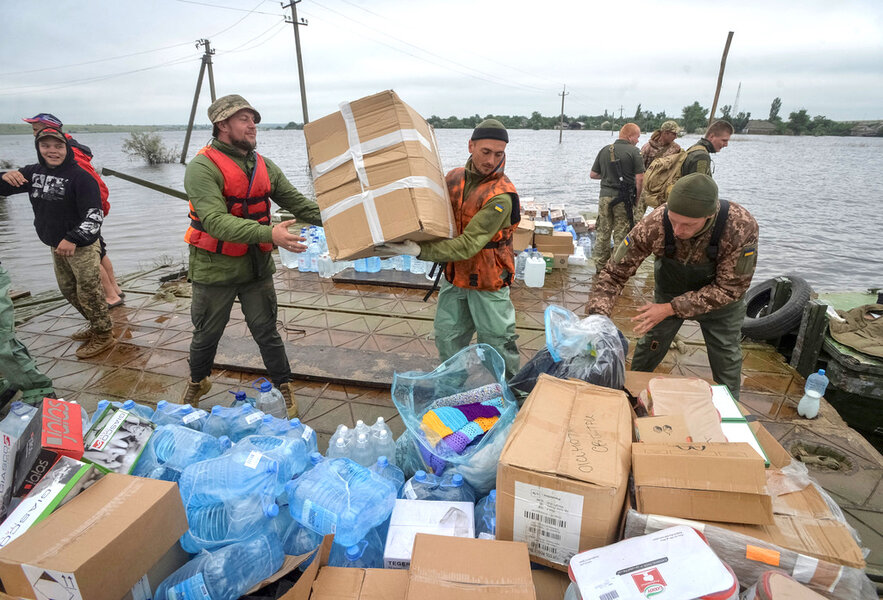Repair of a postwar Ukraine means fixing Russia
Loading...
Many famous Russians living in exile and who are opposed to the war in Ukraine have begun to connect with each other, says Dmitry Glukhovsky, author of the hit novel “Metro 2033.” “The tragedy that we are now experiencing together is drawing us closer,” he told Worldcrunch news. “We are helping each other with moving abroad, with surviving.”
Some are also preparing a new identity for a postwar Russia without Vladimir Putin in power. “We have the feeling that we must create an alternative ... to what Putin is doing with our country,” says Mr. Glukhovsky.
Inside Russia, where few people go beyond official propaganda for news, such introspection may be rare. Yet the self-reflection seen among exiled Russians is exactly what leaders in Ukraine and the West are counting on inside Russia – once Ukraine claims victory.
“Future co-existence based on sustainable peace is impossible without a change in the public consciousness of Russians,” states a manifesto of Ukrainian activists issued in March. “The Ukrainian victory will not be complete unless there is an internal transformation of Russia.”
To help drive the process of repentance and reform in postwar Russia, the United Nations General Assembly adopted a resolution in November holding Russia liable for the costs of Ukraine’s reconstruction. Then in May, more than 40 states in the Council of Europe set up a registry in The Hague to record all the damages that Russia has caused Ukraine.
The ultimate goal of such steps: obtain reparations from a postwar Russian government or from Russian assets frozen in Western financial accounts after the invasion. The latter amount is estimated at $300 billion to $500 billion.
While Ukraine certainly needs money to repair its society, reparations would also send a signal of accountability to Russians, forcing them to remedy the harm done and encouraging them to end a history of Russia invading its neighbors.
“Reparations perform a political function, by providing a medium for wrongdoers to rehabilitate their image and standing, reintegrating them into society or the international community,” writes Luke Moffett, an expert on reparations at Queen’s University in Belfast, Northern Ireland. “In the end, reparations are a way to secure balance between warring parties, to settle their grievances and find a new way to move forward.”
The end of the war is far off, as are reparations from Russia. Yet at least some Russian artists and dissidents in exile are starting the repair work needed for their country’s atonement. If or when Russia must pay for Ukraine’s repair, perhaps more Russians will do the same.





